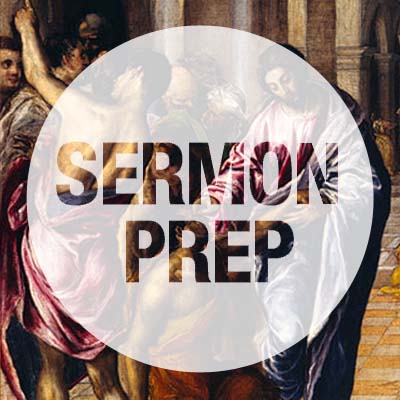Matthew 24.15-28
For then there will be great tribulation, such as has not been from the beginning of the world until now, no, and never will be.And if those days had not been cut short, no human being would be saved. But for the sake of the elect those days will be cut short. Matthew 24:21-22
Much of chapter 24 Jesus discusses the end of history and his second coming with final judgement. This section includes an allusion to the impending siege of Jerusalem and destruction of the temple. In 70AD, roughly forty years after Jesus prophecy, the Roman army enters the city goes into the temple and removes all sacred elements of Israel’s worship and burns the temple to the ground. First century historian Josephus said, “No other city ever suffered such things”. With no temple there is no place for the Mosaic sacrificial system to take place to atone for sin. No daily sacrifices by priests or annual festivals of national atonement. While this is still mourned by the people of Israel who regularly cry out at the remaining “Wailing Wall” those who are in Christ have no need for sorrow. No temple or sacrifice is needed for us to have our sins removed and relationship with God restored. With Jesus perfect sacrifice for sin on the cross he declared “It is Finished!”
- What part of the text or sermon had the greatest impact on you? Where were you most encouraged, intrigued, challenged?
- What do verses 23-28 teach us about the nature of Jesus return? How is it helpful in discerning false teachers and prophets?
- How does the phrase “lead astray, if possible, even the elect” provide Christians with hope even in the face of great difficulty? See Romans 8:30-39
- Read Revelation 21:1-6. Discuss this picture of the new restored city of God in these verses compared to what Jesus describes will happen to Jerusalem this section.
- What are some of the practical implications of this section for the life and hope of a Christian?

